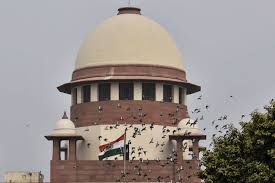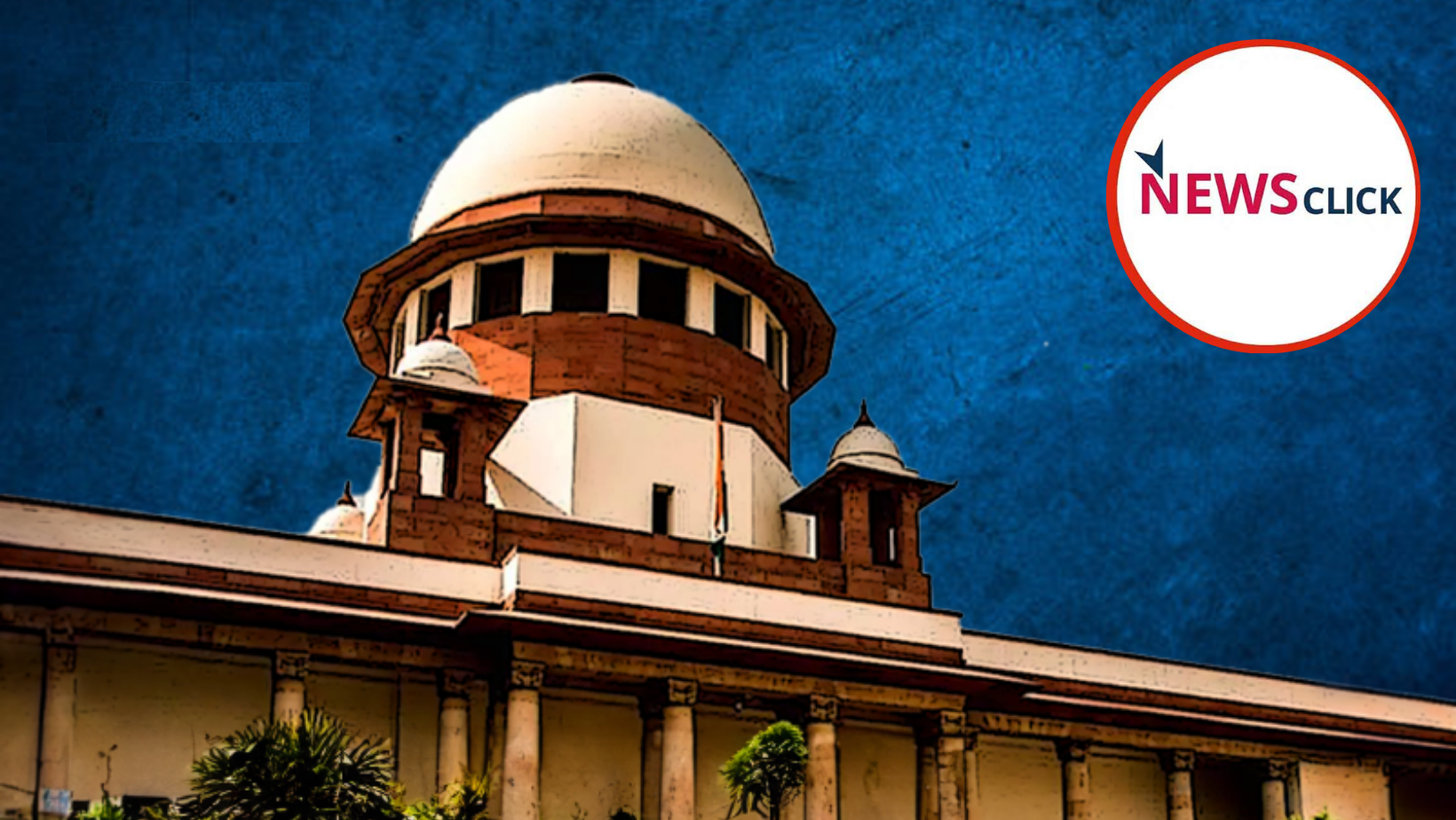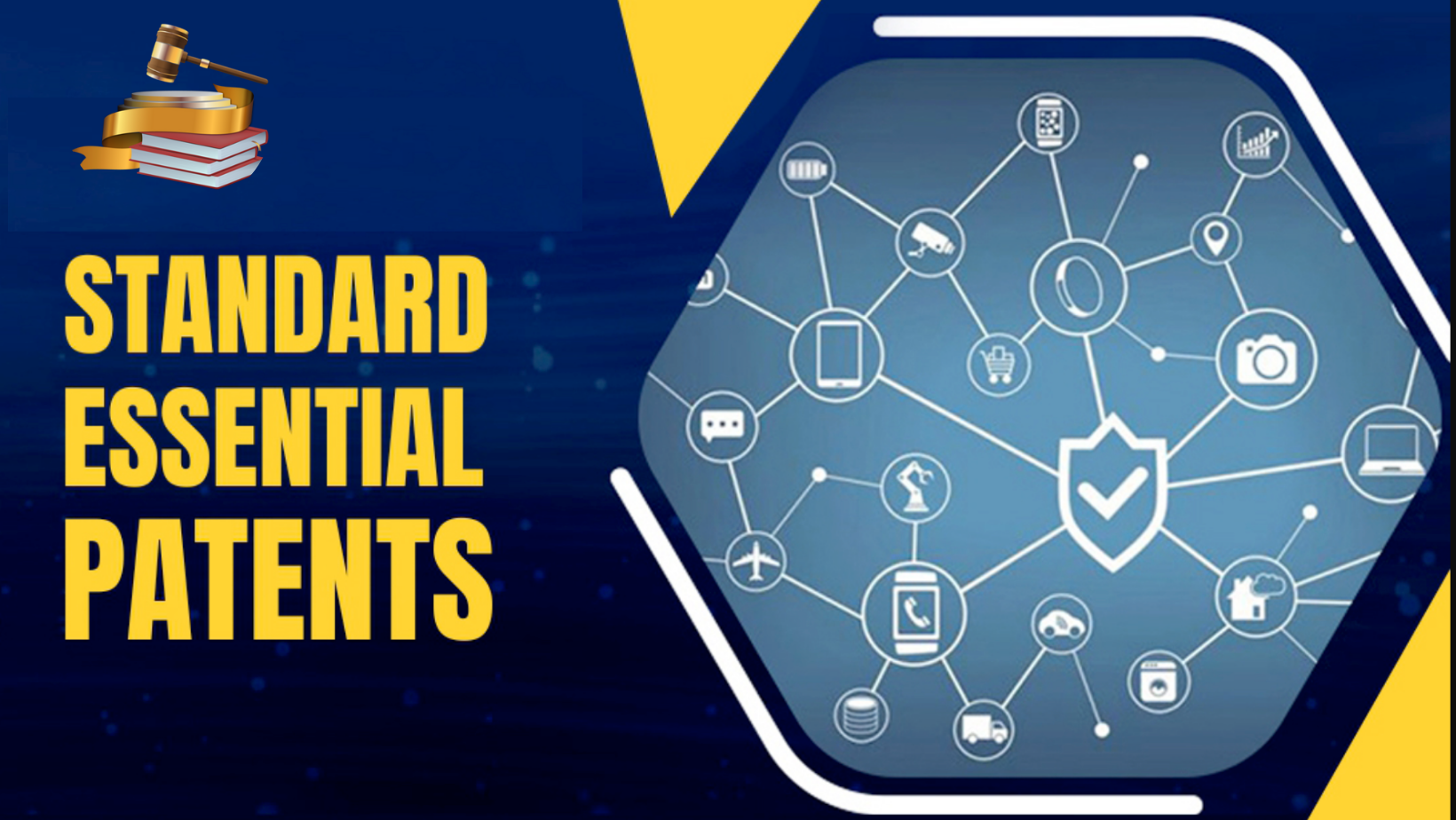CONCERNS OVER JUDICIAL CONDUCT

- 29 Sep 2024
Background
A recent incident involving Justice V Srishananda of the Karnataka High Court has raised serious concerns regarding judicial comments and conduct. During a hearing, Justice Srishananda referred to a locality in Bengaluru as being “in Pakistan” and made an objectionable remark against a female lawyer. Although he subsequently apologized, the Supreme Court, led by Chief Justice D Y Chandrachud, expressed serious concern, highlighting the rarity of such judicial reproach.
Constitutional Framework for Judicial Discipline
Impeachment: The Sole Recourse
Judges of constitutional courts, including the Supreme Court and High Courts, enjoy substantial protections to maintain independence from executive interference. However, this raises the question of accountability: who oversees the judiciary?
- Article 124(4): This article outlines that judges can only be removed through impeachment, which requires a political process involving both Houses of Parliament. The grounds for impeachment are limited to "proved misbehaviour" or "incapacity."
- High Standards for Impeachment: The necessity for a two-thirds majority in both Houses makes successful impeachment exceedingly rare. Historically, only five impeachment proceedings have been initiated, with only one resulting in successful impeachment (Justice Soumitra Sen).
Challenges in Addressing Judicial Misconduct
Certain actions, such as indiscipline or bias, may not meet the impeachment standard but still warrant attention. The Supreme Court faces a dilemma: how to address these issues without the option of impeachment.
Mechanisms for Judicial Accountability
Judicial Intervention
The Supreme Court can intervene through judicial action, as evidenced by past cases:
- Contempt of Court: In 2017, the Supreme Court sentenced Calcutta High Court’s Justice C S Karnan to six months’ imprisonment for contempt. This case raised concerns about one constitutional court punishing judges of another, as it set a precarious precedent.
Transfer Policy
The Supreme Court also influences High Court judges through its Collegium system:
- Collegium Recommendations: The Collegium recommends the transfer of judges, which can serve as a disciplinary tool. The case of Justice P D Dinakaran illustrates this practice. Facing allegations of corruption, he was transferred from Karnataka to Sikkim, a move criticized as merely “transferring corruption.”
Conclusion
The incident involving Justice Srishananda underscores the complexities of judicial accountability in India. While the Constitution provides for impeachment as the only formal recourse against errant judges, the high threshold for such proceedings necessitates alternative mechanisms for maintaining judicial integrity. The Supreme Court's ability to intervene and the use of transfer policies are critical components in addressing judicial misconduct, but they also raise questions about the balance between accountability and judicial independence.
SC Verdict on Newsclick Highlights the Vitality of Adhering to Due Process Beyond Formalities

- 17 May 2024
Why is it in the News?
The Supreme Court recently ordered the release of NewsClick Editor Prabir Purkayastha after hearing his plea, challenging the arrest by Delhi Police in an Unlawful Activities Prevention Act (UAPA) case.
Context:
- The recent ruling by the Supreme Court of India reaffirms its dedication to due process, dispelling assertions of subservience to the executive branch.
- Through a landmark judgment, the Court underscored the indispensable role of due process, especially concerning the arrest and detention of Prabir Purkayastha, founder-editor of Newsclick.
- This verdict emphasizes the crucial disparity between reasons for arrest and the grounds for arrest, emphasizing that the latter must be tailored to the individual and formally communicated in writing to safeguard personal liberty.
Why did the Supreme Court Invalidate Purkayastha’s Arrest?
- The court invalidated the arrest due to the absence of provided grounds, citing a precedent set in the Pankaj Bansal case (2023).
- This landmark ruling emphasized the constitutional right, under Article 22(1), to be informed about the grounds of arrest in writing, deeming any infringement of this right as vitiating the arrest and remand process.
- Furthermore, the verdict underscored the fundamental and statutory right of an arrested person to receive a written copy of the grounds of arrest without exception.
- The court criticized the clandestine manner in which the procedure was conducted, noting that the accused was deprived of the opportunity to defend himself and avail legal representation.
- Additionally, the judgment clarified that an FIR serves to initiate criminal proceedings and is not exhaustive in detailing grounds of arrest.
- The court emphasized that the grounds of arrest must convey specific, personal facts to the accused, distinct from general reasons for arrest.
What is the Due Process of Law?
- Due process of law is a foundational legal principle that ensures the fair and just application of laws while protecting individual rights.
- The concept requires the state to adhere to established legal rules and principles in every case, ensuring that all legal rights owed to a person are respected.
- It serves as a safeguard against the arbitrary exercise of government power.
Significance:
- Fairness and Reasonableness: Due process emphasizes fairness, reasonableness, justness, and non-arbitrariness in legal proceedings.
- Invalidation of Inequality: Any procedural inequality in the law can be rendered invalid under due process.
- Legislative Oversight: Courts consider legislative intent while evaluating statutes in light of due process.
- Protection of Individual Rights: Due process emphasizes the importance of individual rights and grants courts the authority to nullify biased laws.
- Adherence to Basic Legal Procedures: Laws must follow a fundamental process to receive state assent.
Historical Background:
- First mentioned in a statute by British King Edward III in the 14th century.
- The Fifth Amendment of the US Constitution (1791) introduced due process in a constitutional framework.
- In India, due process was invoked by freedom fighters against unjust colonial laws.
- The Constituent Assembly considered including due process in India's Constitution but ultimately adopted a "procedure established by law" instead.
Evolution through Case Laws:
- The Supreme Court's interpretation of due process evolved over time.
- Initial judgments, such as A K Gopalan (1950) and ADM Jabalpur (1976), limited due process by focusing on the narrow meaning of "procedure established by law."
- The Bank Nationalisation case (1970) extended due process to property rights.
- The landmark Maneka Gandhi case (1978) established due process as an integral part of the right to life and personal liberty, requiring laws to be reasonable, just, fair, and non-arbitrary.
Concerns Regarding the Unlawful Activities (Prevention) Act (UAPA) 1967 and Due Process of Law:
The UAPA 1967 raises concerns regarding due process of law due to several provisions that deviate from established criminal law principles. These include:
- Extended Remand and Custody Periods: UAPA allows for 30-day remand orders instead of the usual 15 days and extends the maximum period of judicial custody before filing a chargesheet from 90 to 180 days.
- In the 2023 Pramod Singla case, the Supreme Court highlighted the potential for abuse in preventive detention laws and emphasized the need for strict procedural adherence.
- Controversial Bail Provisions: Section 43D(5) of the Act makes obtaining bail extremely difficult for suspects if the court believes there are reasonable grounds to presume the charges are true.
- The accused must prove the case is false without inviting the court to evaluate evidence, which human rights defenders argue is draconian and undermines due process.
- Expanded Scope Over Time: The Act was amended in 2004 and 2013 to broaden its coverage, including the declaration of unlawful associations, punishment for terrorist acts, and activities threatening the country's security.
- This expanded scope, along with an increased ban on organizations from two to five years, raises concerns about potential misuse and erosion of due process protections.
- Pendency of Cases: According to the National Crime Records Bureau (NCRB), over 12,000 people were imprisoned under such laws in 2021, with 76% being undertrials in 2022.
- Only 18% of UAPA cases result in conviction, and there is an alarming 89% pendency rate for UAPA cases in courts.
- This raises questions about the effectiveness and fairness of the Act in ensuring due process.
Achieving a Balance Between State Security and Due Process of Law:
Ensuring national security while preserving due process of law requires a nuanced approach that respects individual rights and maintains checks on state power. The following strategies can help achieve this balance:
- Clear Legal Framework: Establish precise laws that define the limits and procedures for state actions in the name of security.
- This framework should ensure accountability and prevent misuse of authority.
- A parliamentary committee can oversee and recommend changes to security legislation.
- Strengthened Judicial Oversight: Enhance judicial mechanisms to review and check arbitrary actions by state authorities, including scrutinizing the legality of detentions and other security measures.
- A judicial review committee can assess cases under laws like the UAPA.
- Independent Monitoring Bodies: Create independent bodies to monitor the implementation of security laws and investigate abuses.
- These entities should hold state actors accountable, with organizations like the National Commission for Minorities and NHRC playing crucial roles.
- Human Rights Training: Train law enforcement and security personnel on human rights standards, emphasizing the importance of protecting individual liberties while maintaining security.
- Develop training programs in collaboration with institutions such as the National Police Academy.
- Public Participation: Encourage public engagement in security policy discussions through platforms like MyGov.
- This fosters transparency and acceptance of policies that balance security and rights.
- International Cooperation: Collaborate with international organizations like UNESCO and press freedom groups to promote best practices, upholding press freedom and ensuring a safe environment for journalists and media workers, as outlined in the UN Plan of Action on the Safety of Journalists.
Conclusion
As India continues to evolve, it is crucial to ensure that stringent laws, such as the UAPA, do not overshadow the fundamental rights of its citizens. Achieving a balance between state security and individual liberties is vital not only for the protection of personal freedoms but also as a testament to the strength and integrity of India's democratic society. By fostering a legal and constitutional ethos that values this equilibrium, India can pave the way for continued progress, safeguarding the well-being of its people and the future of its democracy.
The Judiciary’s Shadow Over Standard-essential Patents

- 03 May 2024
Why is it in the News?
The government must put in place measures to regulate standard essential patents before the judiciary causes further damage to India’s manufacturing dreams.
Context:
- The emergence of Standard Essential Patents (SEPs) and their implications for India's telecom manufacturing industry has become a significant policy issue.
- However, the utilization of SEPs by technology firms presents hurdles, potentially jeopardizing India's domestic manufacturing sector.
- Thus, it is crucial to delve into the intricacies of this matter, scrutinizing the role of SEPs, the regulatory challenges they present, and the necessity for regulatory action.
What are Standard Essential Patents (SEPs)?
- EPS are patents indispensable for implementing a technical standard, particularly prominent in industries like telecommunications reliant on standards such as 3G, 4G, and 5G for seamless device and network communication.
- Typically owned by entities or individuals, these patents are vital for guaranteeing the interoperability and compatibility of products and technologies adhering to specific standards.
- Critical for fostering interoperability and competitiveness in the cellular phone market, EPS covers technologies adopted as industry standards.
- Despite their significance, conflicts over EPS licensing and infringement are common, often resulting in legal disputes and negotiations between companies and patent holders to establish equitable licensing terms.
Significance of Essential Patents and Regulatory Hurdles:
- Essential Patents (EPs) such as CDMA, GSM, and LTE serve as the linchpin of technological standards in the telecom industry, ensuring seamless compatibility among various cellular phone brands.
- However, the standard-setting process, predominantly governed by private Standard Setting Organizations (SSOs), limits India's influence in shaping these standards.
- Consequently, owners of EPs may demand excessive royalties, resulting in the "patent holdup" dilemma.
- Although SSOs strive for fair, reasonable, and non-discriminatory (FRAND) licensing, opacity and anti-competitive behaviours persist, as illustrated by substantial fines levied on companies like Qualcomm by multiple jurisdictions.
Judicial Response to Standard Essential Patents (SEPs) Issues:
- Competition Law Enforcement Inertia: The Competition Commission of India (CCI) commenced an inquiry in 2013 upon a complaint by Micromax against Ericsson, alleging SEP licensing abuse.
- However, Ericsson contested the CCI's jurisdiction, resulting in protracted legal wrangling.
- Despite a favourable ruling for the CCI in 2016, Ericsson's appeals prolonged the case until a final judgment in 2023.
- India, due to this prolonged litigation, remains the sole major economy yet to examine potential anti-competitive SEP licensing practices.
- Patent Infringement Cases and Judicial Engagement: While competition law matters linger, the Delhi High Court actively hears lawsuits by SEP owners against cellular phone manufacturers accused of patent infringement.
- These lawsuits entail intricate trials to ascertain patent validity, infringement, and damages.
- Rather than pausing proceedings pending competition law resolution, the court issues interim measures favouring SEP owners.
- Such measures often mandate manufacturers, many of them Indian, to deposit substantial sums with the court for ongoing production during trials.
- Unprecedented "Deposit" Orders: Issuing "deposit" orders, compelling manufacturers to deposit significant funds before trial, is unprecedented in commercial law.
- These orders, lasting throughout lengthy trials, impose heavy financial burdens on defendants, depriving them of vital working capital.
- While lacking legal foundation and fairness, the Delhi High Court justifies them using its "inherent powers to ensure justice."
- This judicial activism, while aimed at expediting legal proceedings, raises concerns about procedural fairness and equitable treatment of litigants.
Impact of Judicial Interventions and Legal Battles on India's Manufacturing Goals:
- Undermining Investor Confidence and Market Stability: Extended legal battles and judicial interventions sow uncertainty, denting investor trust in India's manufacturing sector.
- Foreign investors may perceive the unpredictable legal environment as a barrier to entering or expanding operations in the nation.
- Uncertainty regarding SEP licensing practices and potential adverse court rulings disrupts market stability, impeding long-term investment planning for both domestic and international enterprises.
- Stifling Growth and Innovation: SEP-related disputes divert attention and resources away from fostering innovation and technological progress in the telecom manufacturing domain.
- Rather than directing efforts towards research and development (R&D) or embracing new technologies, companies become entangled in legal disputes, hindering productive pursuits.
- This diversion of resources curtails innovation, obstructs product development, and undermines India's global competitiveness.
- Impact on Employment and Economy: The manufacturing sector is a vital source of employment and economic advancement, especially in emerging economies like India.
- However, uncertainties surrounding SEP-related litigation pose a threat to job stability and employment opportunities, particularly in the telecom manufacturing sector.
- Protracted legal proceedings and financial burdens may compel companies to downsize operations, leading to workforce reductions and inhibiting future investments.
- Policy Inconsistencies: Contradictions arise between judicial rulings favouring SEP owners and government initiatives to incentivize domestic manufacturing.
- While the government aims to attract investment and bolster indigenous production, SEP-related disputes undermine these objectives.
- The disconnect between supporting manufacturers and overlooking financial burdens imposed by SEP owners questions the coherence of policies promoting industrial growth.
- Long-term Industrial Landscape Implications: Unresolved tensions surrounding SEP licensing practices and judicial handling of disputes cast shadows over India's industrial future.
- Failure to address these issues may deter investors, jeopardize job creation, and impede India's transition to a knowledge-based economy.
- With regulatory intervention to streamline legal processes and ensure fairness, India can catch up to global peers in manufacturing prowess.
Way Forward:
- The European Parliament's proactive stance on regulating SEPs offers valuable lessons for global intervention in this arena.
- Given India's constrained influence in standard-setting and obligations to uphold patents of foreign tech firms, it presents a strong rationale for similar regulatory action.
- Enhancing regulatory frameworks to foster transparency, equity, and non-discriminatory practices in SEP licensing is essential to protect India's economic welfare and foster indigenous manufacturing.
Conclusion
The Indian government must prioritize resolving regulatory uncertainties regarding SEPs to protect domestic manufacturers' interests and drive industrial advancement. Regulatory actions should strive for a harmonious balance between technology firms' interests and overarching goals of economic progress, innovation, and consumer protection. Through decisive intervention, India can assert its autonomy, cultivate fair competition, and cultivate an environment conducive to investment and innovation.
